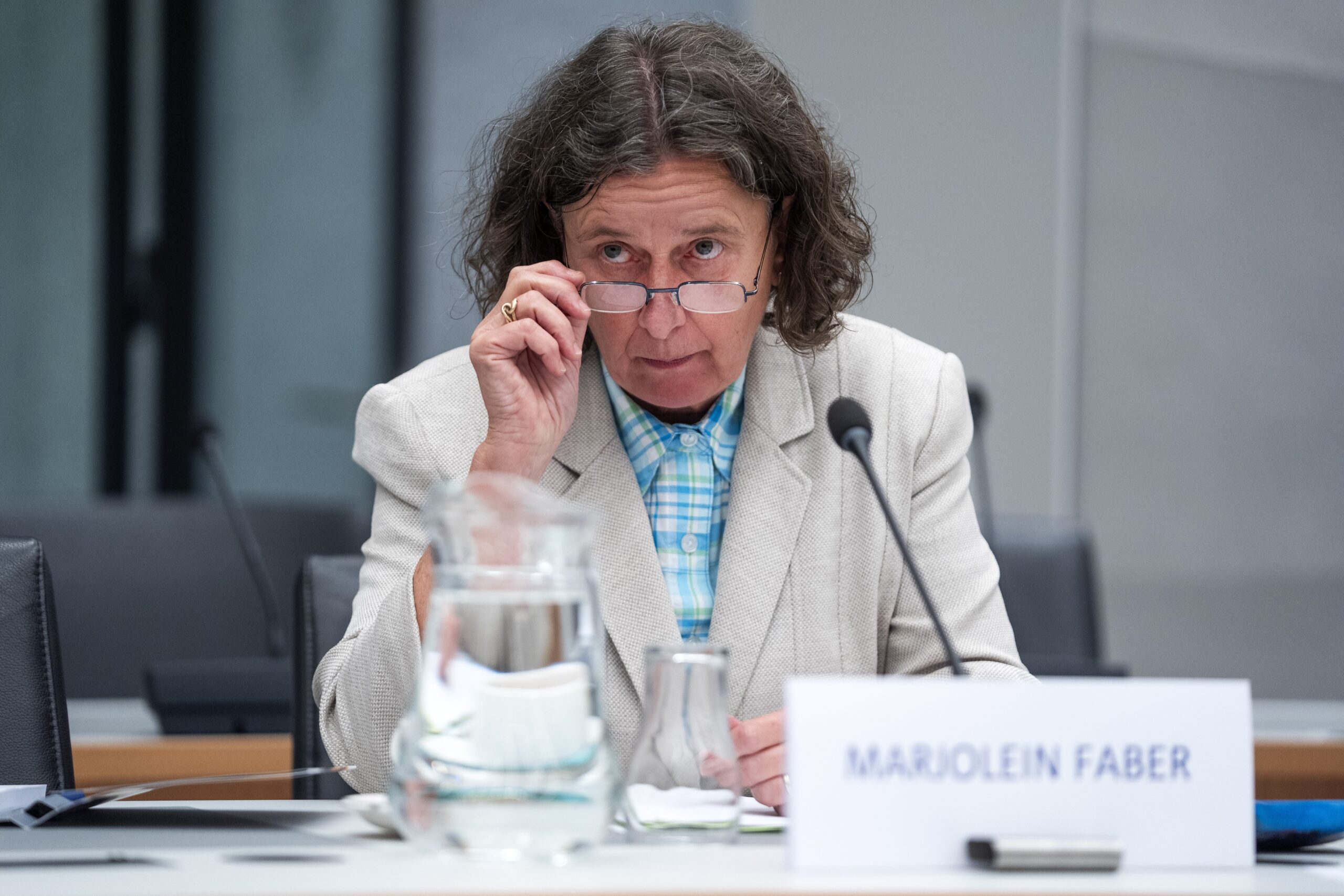Asylum Minister Faber Survives No-Confidence Vote

Table of Contents
The Vote's Background: Pressure Mounts on Asylum Minister Faber
The no-confidence vote against Asylum Minister Faber wasn't a sudden event; it was the culmination of months of mounting pressure. Recent controversies surrounding his increasingly stringent asylum seeker policy have fueled public dissent and intensified opposition from rival parties. The immigration debate has reached fever pitch, with public opinion sharply divided.
- Controversial Policy Changes: Faber's administration implemented several significant changes to the asylum process, including stricter eligibility criteria and a reduction in financial support for asylum seekers. These changes sparked widespread protests and accusations of human rights violations.
- Negative Media Coverage: The media has played a significant role in shaping public perception, with extensive coverage of the protests, criticisms from human rights organizations, and allegations of mismanagement within the asylum system. This negative media scrutiny further fueled the opposition's calls for Faber's resignation.
- Opposition Party Tactics: Opposition parties seized on the public discontent, using the controversies surrounding Faber's policies to build a case for a no-confidence vote. They presented a united front, highlighting the perceived failures of the government's asylum approach and demanding accountability.
- Allegations of Corruption: Whispers of potential corruption within the asylum department further intensified the pressure on Faber and the government, contributing to the growing calls for his removal.
The No-Confidence Vote: A Detailed Breakdown
The no-confidence vote itself was a dramatic affair. Parliament observed the established procedure, with each party given the opportunity to present their case. The debate was fierce, with passionate speeches delivered by both Faber's supporters and detractors.
- Parliamentary Procedure: The vote followed standard parliamentary procedure, with each member of parliament casting a secret ballot. This ensured the integrity of the vote and prevented undue pressure on individual lawmakers.
- Voting Results: While the final margin of victory remains subject to official confirmation, initial reports indicate that Faber survived the vote by a surprisingly narrow margin, suggesting significant internal divisions within the governing coalition.
- Key Speeches: Faber's defense of his policies was met with strong criticism from opposition leaders, who highlighted the humanitarian cost of his approach and the government's perceived indifference to the plight of asylum seekers.
- Political Allies: Crucially, Faber received crucial support from key figures within his own party, ensuring his survival despite the significant opposition. This highlights the internal resilience of the governing coalition, at least for now.
Aftermath and Analysis: Implications for the Government and Asylum Policy
The immediate aftermath of the no-confidence vote leaves several crucial questions unanswered. While Faber survived, the narrow margin of victory sends a strong message about the fragility of his position and the divisions within the governing party regarding asylum policy.
- Government Stability: The vote has undoubtedly shaken the government's stability, highlighting the internal divisions and vulnerabilities within the ruling coalition. Future votes of confidence might be on the horizon.
- Government Response: The government's response to the vote will be crucial in determining the long-term consequences. Will they attempt to appease critics by softening their asylum policies or will they dig in their heels, risking further instability?
- Future of Asylum Policy: The no-confidence vote is a clear indication that the current asylum policy is deeply divisive and unsustainable in its current form. The government might be compelled to rethink its approach, perhaps through compromise and reform.
- Public Reaction: The public reaction will significantly shape the narrative surrounding this political crisis. Continued protests and media scrutiny are likely, placing further pressure on the government and Asylum Minister Faber.
Conclusion
Asylum Minister Faber’s survival of the no-confidence vote is a significant, albeit temporary, victory. The narrow margin, however, underscores the precariousness of his position and the deep divisions within the government over asylum policy. The ongoing asylum debate is far from settled, and the fallout from this vote will undoubtedly shape the political landscape and the future of immigration policy in the coming months. To stay informed about the implications of this critical vote and the future of Asylum Minister Faber, stay tuned for further updates on this developing political crisis and the ongoing asylum debate.

Featured Posts
-
 Selena Gomezs Edgy Leather Dress Fashion Statement Of The Day
May 12, 2025
Selena Gomezs Edgy Leather Dress Fashion Statement Of The Day
May 12, 2025 -
 Ipswich Town Kieran Stevenson Prepares For Next Season
May 12, 2025
Ipswich Town Kieran Stevenson Prepares For Next Season
May 12, 2025 -
 Mc Laughlin Secures Pole In Thrilling St Petersburg Gp Qualifying
May 12, 2025
Mc Laughlin Secures Pole In Thrilling St Petersburg Gp Qualifying
May 12, 2025 -
 L Humoriste Eric Antoine De Nouveau En Couple Decouvrez Sa Nouvelle Compagne
May 12, 2025
L Humoriste Eric Antoine De Nouveau En Couple Decouvrez Sa Nouvelle Compagne
May 12, 2025 -
 Hakkari Deki Hakim Ve Savcilarin Katildigi Iftar Programi
May 12, 2025
Hakkari Deki Hakim Ve Savcilarin Katildigi Iftar Programi
May 12, 2025
